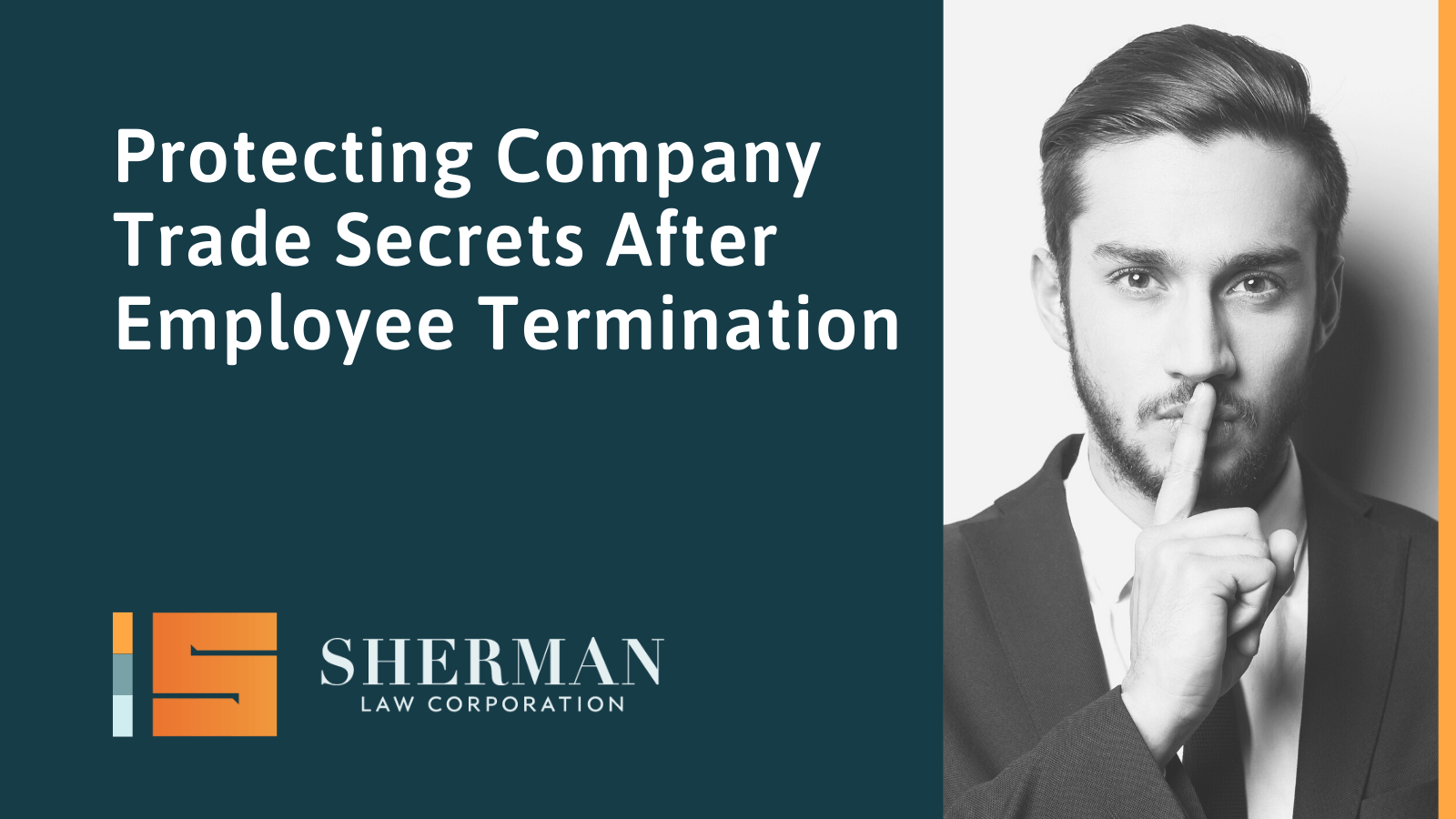
As a California employment lawyer, I cannot tell you how many times a panicked employer contacts me when they learn that their confidential, proprietary trade secret information left with the hot-headed, disgruntled recently-terminated employee.
Some of these employers have confidentiality policies and agreements signed by the employee, which is good news if we need to sue, but oftentimes the agreements define confidentiality to include everything but the kitchen sink, threatening its enforceability.
Either way, the proprietary information has been released into the wild by an angry former employee who could not care less about confidentiality agreements. Not to mention trade secret litigation is by far one of the costliest types of lawsuits for employers, leaving the employer with big legal fees and damage that cannot be undone if the information goes viral. It is important now more than ever to look into protecting company trade secrets.
My firm, the Sherman Law Corporation, helps California employers prevent these types of issues through counseling, training, and policy implementation, as well as helping them on the back-end if litigation is necessary. Read on to learn more.
Why Company’s Trade Secrets Continue to Escape
Here are the main reasons why a California employer’s trade secrets get out:
- The Employer trusted the employee(s) and never expected the relationship to go south.
- The Employer spent so much money defending another employment lawsuit that the employer did not want to spend one more dollar repairing any exposed leaks when the last employee bolted with the Company’s trade secrets and began emailing clients continuing to conduct business.
- Finger pointing: The Employer blames the IT Department and HR for not implementing protections. In these cases, the IT and HR Department representatives can usually produce an email pricing out a mobile device management program that the executives rejected or ignored.
Employer Take-Aways
So what are the take-away lessons for California employers?
- First, trust cannot replace implementing proper and enforceable measures.
- Second, depending on what the information is, by not implementing these measures the employer risks losing trade secret protection entirely.
- Moreover, if the proprietary information is, for example, a high level executive’s financial information, or in the case of an attorney, privileged information, the employer will be exposed to additional liability for not taking the appropriate action to protect these confidences.
What if the proprietary information is on a device that is lost or stolen?
Theft has increased by 26% since 2011; smartphone thefts were up 23% in 2013 alone. Even more startling was that only 50% of thefts or losses of devices with company information were reported to employers, within one day. 38% were reported 1-2 days later, with nearly 10% up to five days later.
If this happens to your company, it’s important to take the following steps:
- Disable access to the stolen or damaged device to prevent any unauthorized access to sensitive company information.
- Activate a remote wipe to erase all data on the device.
- Investigate the incident to determine the extent of the damage and the potential impact on the company.
- Notify affected parties: If the stolen or damaged device contained sensitive information of employees, customers or partners, the employer should notify them about the incident and potential data breach.
- Take measures to prevent future incidents by working with a dedicated employment law firm to implement stronger security measures, train employees on data security best practices, and review and update the company’s policies and procedures on data protection.
Contact Lisa Sherman Today
For more information on protecting company trade secrets, feel free to contact our office at 323-488-2087.




